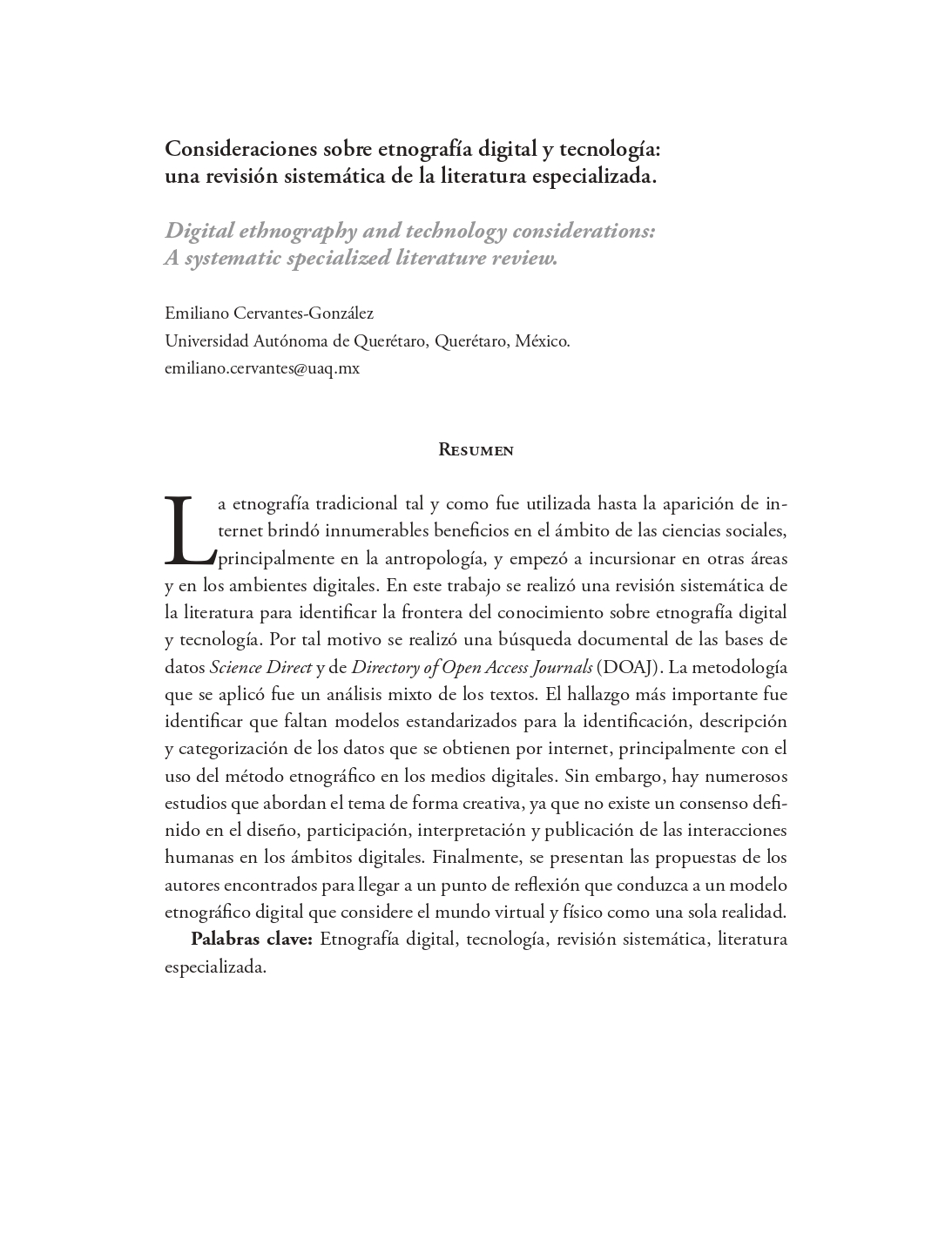Abstract
Traditional ethnography as it was used until the appearance of the Internet provided countless benefits in the field of social sciences, mainly in anthropology, and began to venture into other areas and digital environments. In this work a systematic review of the literature was carried out to identify the frontier of knowledge about digital ethnography and technology. For this reason, a documentary search of the Science Direct and Directory of Open Access Journals (DOAJ) databases was carried out. The methodology that was applied was a mixted texts analysis. The most important finding was to identify the lack of standardized models for the identification, description and categorization of data obtained through the internet, mainly with the use of the ethnographic method in digital media. However, there are numerous studies that address the issue creatively, since there is no definite consensus on the design, participation, interpretation and publication of human interactions in the digital fields. Finally, the proposals of the authors found to reach a point of reflection that lead to a digital ethnographic model that considers the virtual and physical world as a single reality are presented.

This work is licensed under a Creative Commons Attribution-NonCommercial 4.0 International License.

